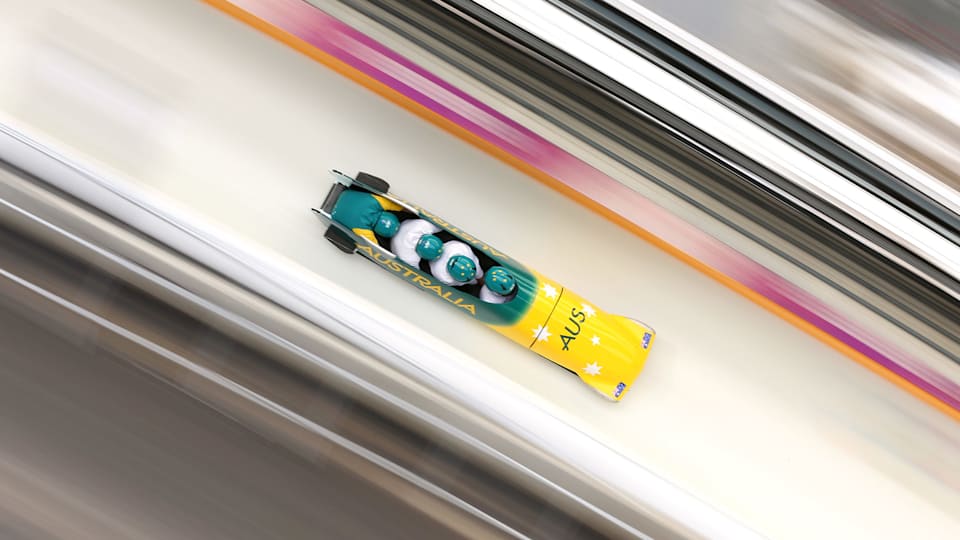IBSF looks to new exciting frontiers ahead of PyeongChang
One of the many inspiring aspects of an Olympic Winter Games is the way in which it can encourage athletes and even entire countries to apply themselves at a sport that might never have appeared open to them.

Since Sochi 2014, both Ghana and Ivory Coast have joined the International Bobsleigh and Skeleton Federation (IBSF), and they have an eye on competing in PyeongChang 13 months from now as the sport’s global reach continues to spread ahead of the Games.
“The audience is growing every year, and we have more and more countries interested in our sport all the time,” says Heike Groesswang, General Secretary of the IBSF. “Ghana and Ivory Coast are not typical winter sports countries but they have great athletes who want to fulfill their dream of going to the Olympics.”
That ambition is drawing closer for many others too and life at the IBSF has been non-stop of late. Work at the bobsleigh Olympic facility in PyeongChang reached an important milestone recently and attention will soon be focused on the first pre-Games test event.
“We had the track homologation in October, when international athletes were out sliding on the track and our committee was present,” Groesswang says. “That was a very important step in our preparations.
“Next will be the test event in March. We are confident everything will be in place from an operational perspective. It is a completely new track, with new people and a new organising committee, but they have been very open and willing to learn and open so we feel prepared and happy to assist them over the coming year. A new venue is one of the most exciting things about a Games.”
While this work continues, athletes are enjoying another competitive season on the track – and fine tuning for the biggest stage of all.
“The World Championships in Konigsee [GER] this February will be the highlight of the year,” Groesswang explains. “But in total we have about 180 races during the season and you can already feel that people are getting ready for PyeongChang. You can see how people are building their teams and working on the finer, tactical details before the Games. If you ask the athletes what they are training for, their biggest aim is obviously participation at the Olympics.”
There is, Groesswang says, a surge in participation after every Games and she points out the benefits of another popular event that is still relatively new.
“In the Youth Olympic Games, which was held in Lillehammer [NOR] this year, we have a monobob discipline that got a lot of attention from younger people. We use that to help the individual federations get more interest.”
PyeongChang should spark yet more enthusiasm for one of the most exhilarating winter sports. Lizzy Yarnold, the British competitor who won a gold medal in skeleton at Sochi, is among the established stars to look out for and new names are certain to emerge too.
“Lizzy has already won a medal but is still quite young [28] and to defend a title is more difficult than to win your first one,” Groesswang says. “But she looks strong in her mind so I don’t see any issues there. She will be one to watch again.
“Another to look out for is a quite young German, Johannes Lochner, whose uncle – Rudi Lochner – won two-man bobsleigh silver in 1992. It’s a fun story: his father told him he could try the sport, but only for a limited period because he had been through it all with his own brother. All this time later, Johannes is still going and doing really well. During the season we will see who else is coming through and ready to challenge the older generation.”
The message, though, is that anyone should be capable of success in PyeongChang with the right support around them.
“If you have the right programme, and people who are committed, you can win medals even if you are not a typical winter sports nation,” Groesswang says. “When the people, system, plan and concept are right you are able to succeed – and that is a very important thing for us.”
